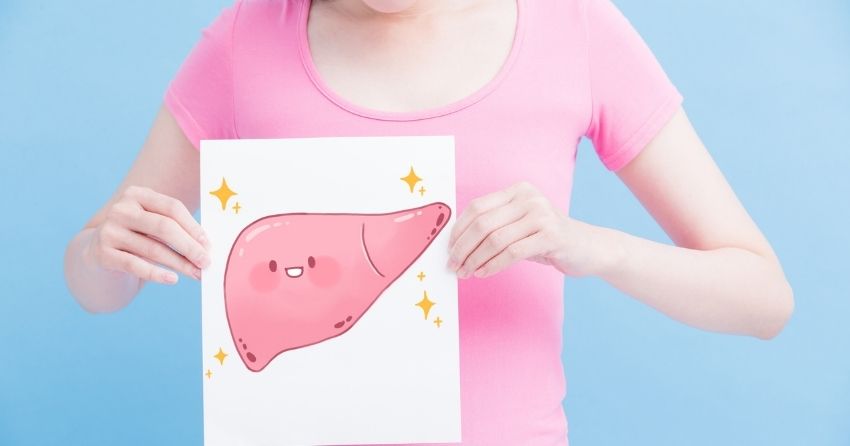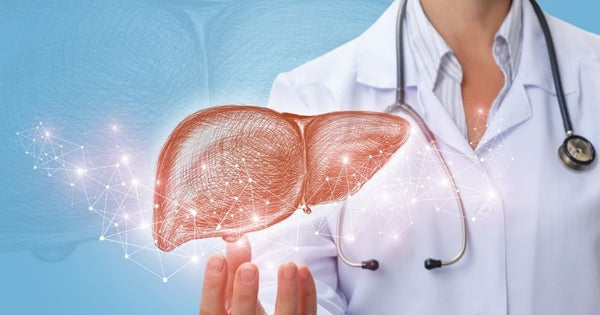Curcumin and Cardio: How Antioxidants and Aerobic Exercise Support Healthy Livers and Cholesterol Levels As We Age

Necessary for detoxification, metabolizing nutrients, and processing waste products, the liver is an essential but often overlooked organ when it comes to healthy aging. With age, liver function tends to decline, increasing the risk of fat buildup and abnormal accumulation of scar tissue in the liver.
Although the progression of poor liver health is multifaceted, abnormal levels of lipids (fats) and cholesterol in the blood — known as dyslipidemia — are often involved, mirroring the buildup of fat in the liver. Older adults are more likely to develop both dyslipidemia and poor liver health, but the cellular and gene-related mechanisms behind these altered states are not entirely understood — and neither are simple ways to fix them. In a recent study published in Research in Pharmaceutical Sciences, Shirpoor and colleagues aimed to uncover part of these unknowns. This Iran-based research team finds that curcumin — the active compound in turmeric — and aerobic exercise improve several markers of dysfunctional liver health, suggesting that simple lifestyle changes may be able to support both liver and lipid health with age.
The Advantages of Antioxidants
A driving factor of age-related liver and lipid dysfunction is oxidative stress — the overload of harmful compounds called reactive oxygen species (ROS) that cause damage to cells, lipids, and proteins. One way to combat this accumulation is by increasing consumption of antioxidants like curcumin. This bright-yellowed compound that gives turmeric its sunny hue is a potent antioxidant, scavenging for the ROS and free radicals that oxidize lipids and cause liver abnormalities.
Habitual aerobic exercise is also linked to a myriad of health benefits, including healthier inflammatory responses, reduced triglycerides (fat in the blood), and boosted HDL (“good”) cholesterol. With these benefits in mind, Shirpoor and colleagues tested the effects of both supplemental curcumin and moderate aerobic exercise on the lipid and liver health of a group of aged male rats. The research team split the animals into five groups: one that received curcumin supplements, one that aerobically exercised five days per week, one that received both treatments, and two control groups — one older, one younger.

Curbing Cholesterol With Curcumin and Cardio
After the 8-week study, the research team found that all three treatment groups — curcumin, exercise, and curcumin plus exercise — had markedly reduced triglyceride levels compared to the young and aged control rats. However, when it came to total and LDL (“bad”) cholesterol, the curcumin group was the clear winner, lowering cholesterol levels to that of the young mice. Although the exercise and combination groups did show reduced cholesterol levels, the curcumin group surprisingly exhibited the most benefits when administered on its own, without exercise.
Conversely, when compared to the aged and young controls, HDL cholesterol was only significantly boosted in the exercise and combination groups — the curcumin group did not see the same benefits when administered on its own.
Garnering Greater Gene Activity
Another factor that plays a role in both liver health and lipid metabolism is a network of hepatic transcription factors — proteins that turn genes on or off by binding to nearby DNA — including three called FAT/CD36, PTP1B, and HNF4-ɑ. Disruption of this network is known to cause dyslipidemia and hepatic steatosis, so Shirpoor and colleagues looked at how these transcription factors were affected by age, exercise, and curcumin.
As expected, the aged rats exhibited altered activity of these transcription factors, including too-high activity levels of FAT/CD36 and PTP1B combined with too-low levels of HNF4-ɑ. All three treatment groups were able to mitigate these abnormal protein levels, bringing them back to a healthy status that could better support the liver and lipid metabolism. The authors state of this finding, “Another important result of the present study was the overexpression of liver PTP1B, which has emerged as an important key regulator [of liver lipid metabolism], in the aged group as compared with the young control group.”
Lastly, the aged rats showed signs of mild liver scarring, which was attenuated by all three treatment groups, indicating that both curcumin and aerobic exercise support healthy structural changes in the liver.

Curcumin and Aerobic Exercise De-liver on Health
This study adds to the evidence that maintaining a habit of aerobic exercise is, unsurprisingly, beneficial for supporting the liver, as well as healthy lipid and cholesterol levels. However, Shirpoor and colleagues also report that supplemental curcumin provides many of the same benefits — sometimes even more. As the team reflects in their paper, “In the current study, curcumin administration turned out to induce a similar improving effect [as exercise] on unfavorable lipid profiles and liver structural alteration among the aged rats.”
Another important finding was that aging causes detrimental changes to transcription factors in the liver. Targeting these proteins could prove to be a novel therapeutic strategy for normalizing lipid metabolism in older adults — and, with it, fighting the poor liver health and fat buildup that affects almost half of those over age 70. For most people, getting into a regular exercise routine and considering a curcumin supplement could be a low-risk way to support healthy liver function and cholesterol levels at any age. However, as this study was only done with rats, we don’t know for sure if the results would translate to humans — so as for now, we’re chopped liver.
References:
Farzaei MH, Zobeiri M, Parvizi F, et al. Curcumin and the Liver: A Systematic Review of the Cellular Mechanisms of Oxidative Stress and Clinical Perspective. Nutrients. 2018;10(7):855. Published 2018 Jul 1. doi:10.3390/nu10070855
Shirpoor M, Tofighi A, Shirpoor A, Pourjabali M, Chodari L. Effect of moderate exercises and curcumin on hepatic transcriptional factors associated with lipid metabolism and steatosis in elderly male rats. Res Pharm Sci. 2021;16(3):294-304. Published 2021 May 12. doi:10.4103/1735-5362.314828





